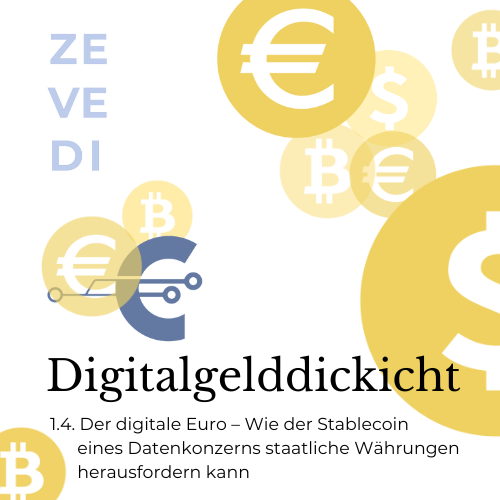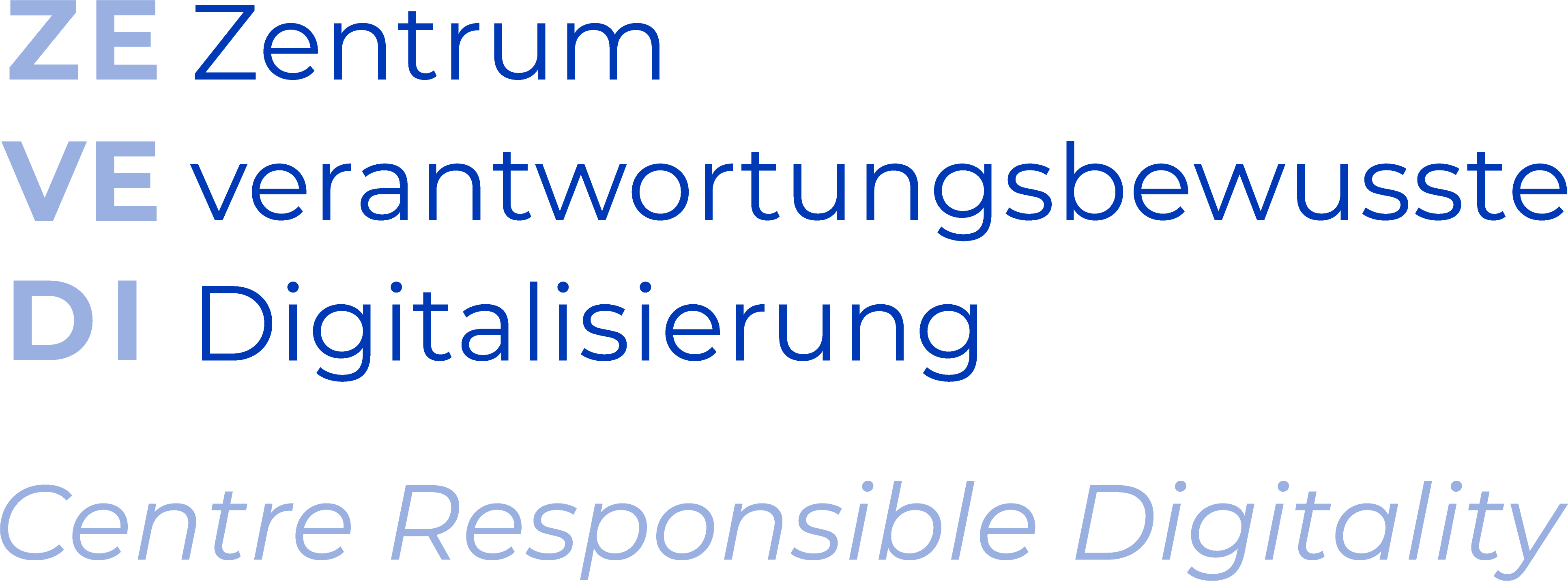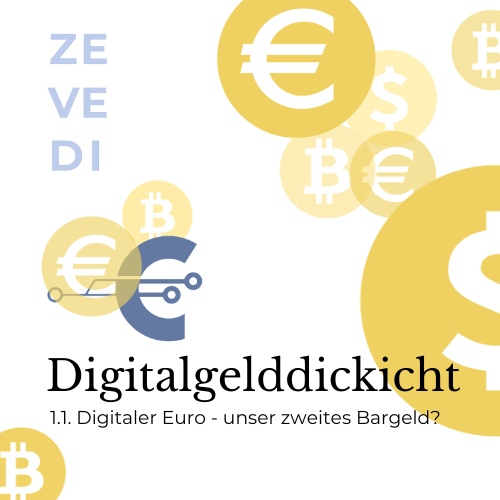
When Facebook (now Meta) initiated a global stablecoin project called Libra in 2019, governments, federal banks and regulators around the world were alarmed. The plan for a global digital money issued by the world’s biggest social network met resistance by regulators on both sides of the Atlantic. After all, it could potentially have been used by billions worldwide. The project was ultimately abandoned.
While it is not used as a common argument for or against a digital euro any more, the Libra project sent shock waves around the world and caused the ECB to accelerate research into and planning for the digital Euro. In this episode, eFin & Democracy therefore takes a look at how and why it affected the European and other CBDC endeavours: What is a stablecoin? How would the Libra stablecoin have worked? What hopes and fears were associated with Libra – and with private-sector stablecoins in general? And what tasks have arisen from this with regard to the regulation of crypto assets on the one hand and digital central bank money on the other?
Guests
Dr. Jonas Gross is an economist». Having earned his PhD at the University of Bayreuth with a thesis on the monetary economy and digital currencies, he is co-founder and chairman of the Digital Euro Association, and Chief Operating Officer at etonec, a business offering blockchain-based payment solutions.
Prof. Dr. Sebastian Omlor is Professor for Private Law, Commercial and Business Law, Banking Law, and Comparative Law» at the Philipps-Universität Marburg und Founding Director of the Marburg Institute on the Law of Digitization (IRDi)». An important research focus of his are legal issues of the digitized financial sector. He leads the ZEVEDI project group Tokenization and Finance».
Moritz Hütten is a financial sociologist», reserach coordinator at the Darmstadt Business School and a graduate student at the University of Amsterdam.
Claus George is Head of Digitalization and Innovation TxB at DZ BANK AG, focussing on new means of payment and forms of money.
Prof.Dr. Barbara Brandl is Professor for Sociology with a focus on Organization and Economy» at the Goethe-Universität Frankfurt. She is member of the ZEVEDI Project Group Tokenized Finance».
Cornelia Manger-Nestler is Professor for German and International Business Law» at the HTWK Leipzig.
Further information
European Central Bank, Crypto Asset Task Force: Stablecoins: Implications for monetarypolicy, financial stability, market infrastructure and payments, and banking supervision in the euro area, Occasional Paper Series, No. 247, September 2020. Find the pdf here».
John Oliver: Cryptocurrencies II ( Episode of 24 April 2023): https://www.youtube.com/watch?v=o7zazuy_UfI
Hannah Murphy and Kiran Stacey: Facebook Libra: the inside story of how the company’s cryptocurrency dream died, Facebook Libra: the inside story of how the company’s cryptocurrency dream died», Financial Times, 10 March 2022.
Claus George: Digital Payments – Yesterday, Today, Tomorrow, Lecture (in German), 25 Aril 2022, within the Public Lecture Series „Do you understand Crypto?“ at TU Darmstadt in 2022.


